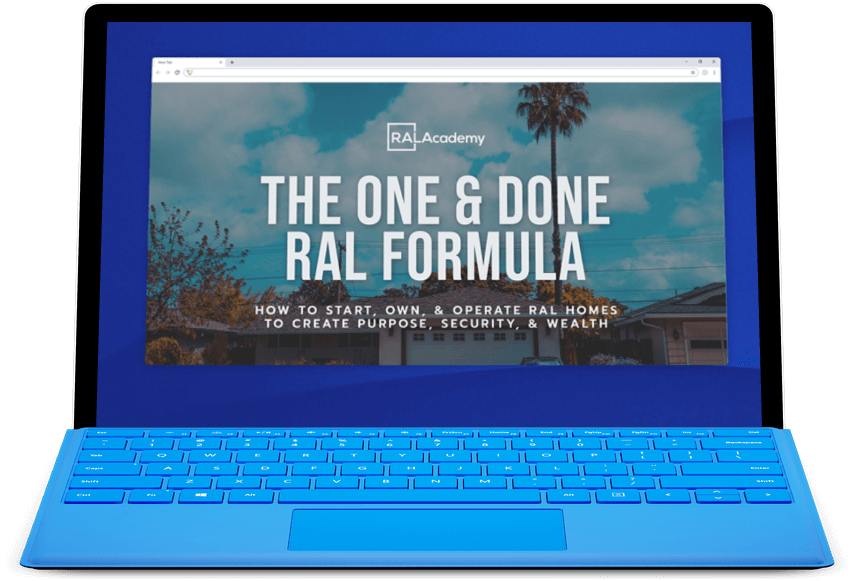Learning to be more selective about your business decisions allows entrepreneurs to do fewer things much better, and this is also true when it comes to residential assisted living. What makes time so precious? Have you considered why people cherish time? Have you ever been angered or caused anger in someone because of wasted time? What is it about time that causes such angst in people? The single answer to these multiple questions is simple. Measurement. The mere reality that time is measured creates the understanding that time will come to an end. Time is not infinite. Therefore, time is the referee of the race – it is impartial. It is to this end, that people take time so seriously.
Time is even personified. Have you not noticed? It is often regarded as Father Time. This designation is endearing, yet it is focused, serious and unmoved by emotion. Time, like a good father, ticks and tocks regardless of the circumstance. As you seek to open your first residential assisted living home, your personal time is of the essence. The need for your home is clear, the plan is laid bare before you, if you are connected with the Residential Assisted Living Academy. Your time must be leveraged appropriately so that you can maximize your business experience with your new residential assisted living home plans.
Do Fewer Things Better
In order for your time to be fully leveraged, you must know what you do well and what you do not do well. Be honest with yourself.
Ask yourself the following questions:
- What am I most passionate about as it pertains to my plans in residential assisted living?
- What am I least passionate about?
- What things MUST I do in order to ensure my new residential assisted living home is well operated?
- What things MUST I do in order to protect proprietary data?
- What things should be delegated to management staff, who are closer to the nature of the work?
- What type of leadership style will best work in my residential assisted living home?
Once you are clear on these questions, you can formulate a detailed, realistic strategic plan. A Strategic plan will protect your time. It is the barometer of your activity and will keep you focused on what you need to be doing. .,lConversely, it will remind you of what you do not need to be investing your time into.
Here’s an over-simplified method for implementing your strategic plan:
- Decide on what matters the most.
- Say no to everything else.
- When something falls in the gray area, re-read #2.
While this is easier said than done, it absolutely must be a guiding principle in your operation of a residential assisted living home.
Remember, your time must be protected, so that it can be leveraged to build and operate a most successful residential assisted living business possible.
6 Steps To Formulating Your Strategic Plan
1. When Making Your List, Start with A Low-Level Concept
- Resist the temptation to make your list complicated.
- Be specific: Do not prioritize being successful. This is too broad and non-specific.
- If your list is too extensive, which it mostly likely will be, refer back to the steps above.
- Remember what you want to do vs. what you must do.
- Stay focused.
2. Learn to say, “NO.”
- If your precious time is being drawn away by activities that are not central to the responses of the questions above, say “NO.”
- Remember, your time, which is not infinite, must be allocated to the duties and activities associated with the answers to the questions posed above.
a) You must learn to say, “NO,” in order to ensure the residential assisted living home’s optimal success.
b) Do not be satisfied with “good enough,” “good service,” or a “good product.”
Ask yourself, how many good products or services from twenty years ago are still in existence today.
c) The protection of your time will ensure your good residential assisted living home will be a great one, serving the community for multiple decades.
3. The Benefit of Saying “No.”
- Each time you say “NO” to one thing, you are saying “YES” to your own strategic plan created to ensure the success of your residential assisted living home.
- Your time must be respected by you, first. Once staff members and even residents see how you value your time, they will do likewise.
- By remaining loyal to your strategic plan, you will also find yourself happier and healthier.
4. Fight the Fear of Missing Out
- This is a major detractor. The fear of missing an opportunity by saying “No,” is real.
a) Do not be allured.
b) You’re saying “No,” because this opportunity is not aligned with your strategic plan.
c) If you start saying “Yes,” to every opportunity you will find yourself fatigued and confused.
d) Your residential assisted living home needs you to be loyal to your own strategic plan.
- Honestly, the root of fear of missing out is greed.
a) Be a disciplined owner, not a greedy one.
b) A gluttony of good opportunities will leave you starving from lack of attending your own opportunity.
5. Be Careful with Recurring Commitments
- Your time is too precious to be occupied by recurring commitments that are not associated intimately with your strategic plan.
- If you find it needful to divert, for a brief moment, make sure you won’t be required to divert frequently. This will derail your strategic plan.
6. Prune Prior Commitments
- This is tough. You had a life prior to engaging in owning and operating a residential assisted living home. However, once you’ve embarked upon this amazing journey, a strategic plan to govern your time is necessary for success.
a) Life prior to the residential assisted living home might have to be reconsidered or re-thought.
b) Prior commitments that aren’t a priority may need to be eliminated or altered.
- Remember, you are looking to operate a residential assisted living home for seniors. This requires a focus on caring for the health and safety of others.
a) Inform individuals or organizations of your new venture and the need to focus your time to it – they will understand.
The Difference Between What Feels Good Vs. What Does The Most Good
Don’t favor what feels good – favor what does the most good. Remaining loyal to your strategic plan will require you to say “No,” to things or people you have historically said “yes.” If you are going to own and operate a successful residential assisted living home, your time must be garnered for those activities that matter most. There is a sure way to advance your strategic plan beyond the stages of feeling good to doing good. That plan starts with the Residential Assisted Living Academy. The 3-day training provides answers to everything ranging from A-Z about owning and operating a residential assisted living home. The success of your business starts with learning the right information from the right resource. For more information and to learn from the experienced experts in residential assisted living click here.




